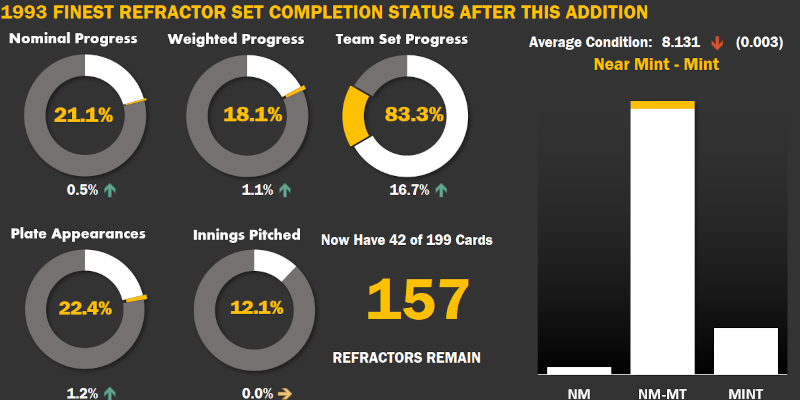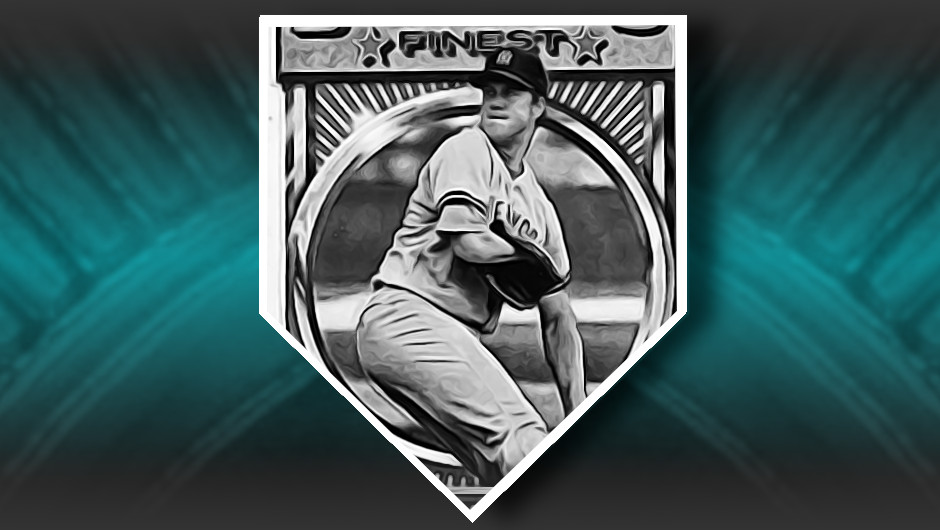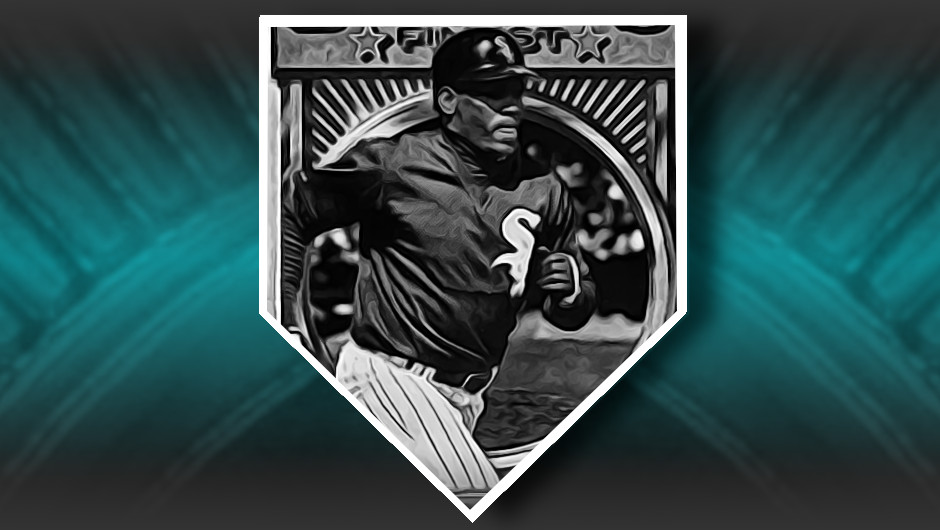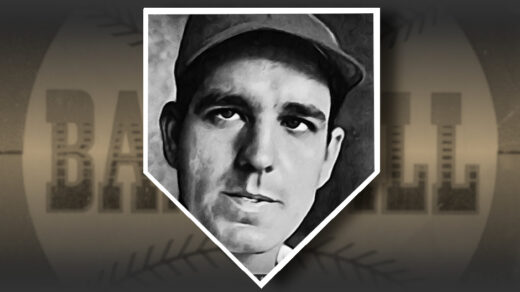Hobbyists buying packs of Topps’ first series regular-issue baseball cards in 1993 were greeted with two players pictured on the box. The cards’ packaging gave collectors a glimpse of the cards they could find of a pair of players both known as “The Kid.” Ken Griffey, Jr. was the obvious choice for the nickname among younger players. The other displayed on the box (and overlapping Griffey) was Robin Yount, a 38-year-old veteran. As a little kid at the time, I didn’t really understand why Yount would get such a nickname. After all, he had been “old” my entire life.
Yount got the nickname two decades earlier when he was drafted in the first round of the 1973 MLB draft. Only 17 years old at the time, he was picked third overall by the Brewers who bypassed Dave Winfield (4th overall) and Eddie Murray (63rd) in making their selection. He made his debut in 1974 at age 18, a year younger than Griffey, and promptly became the last 18-year-old to hit a home run in MLB history. Yount did well, becoming the Brewers’ starting shortstop for the remainder of the decade. A .270 hitter with a smattering of single-digit home runs in these first six seasons, he seemed to be shaping up as a lightweight version of Dave Concepcion.
Yount held out for a better contract at the start of the 1978 season. This was an aggressive stance to take for a guy who had yet to post any single-season OPS+ above 94. It was even more risky considering the Brewers promoted Paul Molitor to be his replacement. Yount was having a bit of a quintile-life crisis and was actively considering leaving baseball altogether to pursue a career as a PGA golfer. The two sides eventually came around to an agreement and he put together his best year to date.
The Eighties
When Opening Day rolled around in 1980 Yount was 24 years old, a younger age than Hall of Famers Randy Johnson and Carl Hubbell were at the time of their debuts. He made the most of it, reaching 1,000 hits that season and becoming the 6th fastest to the mark. He would get his 2,000th a few years later at the seventh youngest age, keeping pace with some of the game’s greatest names. He finished the decade with the most hits (1,731) of any player.
Helping him with this output was tremendous speed. Peter Gammons once reported a scout telling him Robin always ran to first in 3.9 to 4.0 seconds, never wavering in his pace regardless of the situation. Six of his 251 career home runs were of the inside-the-park variety, the second highest total seen in the last 50 years.
His power numbers surged in the decade, a development some attribute to his weight training but in my opinion entirely derived from his cultivating a sweet ’80s mullet that he wore for the rest of his career.
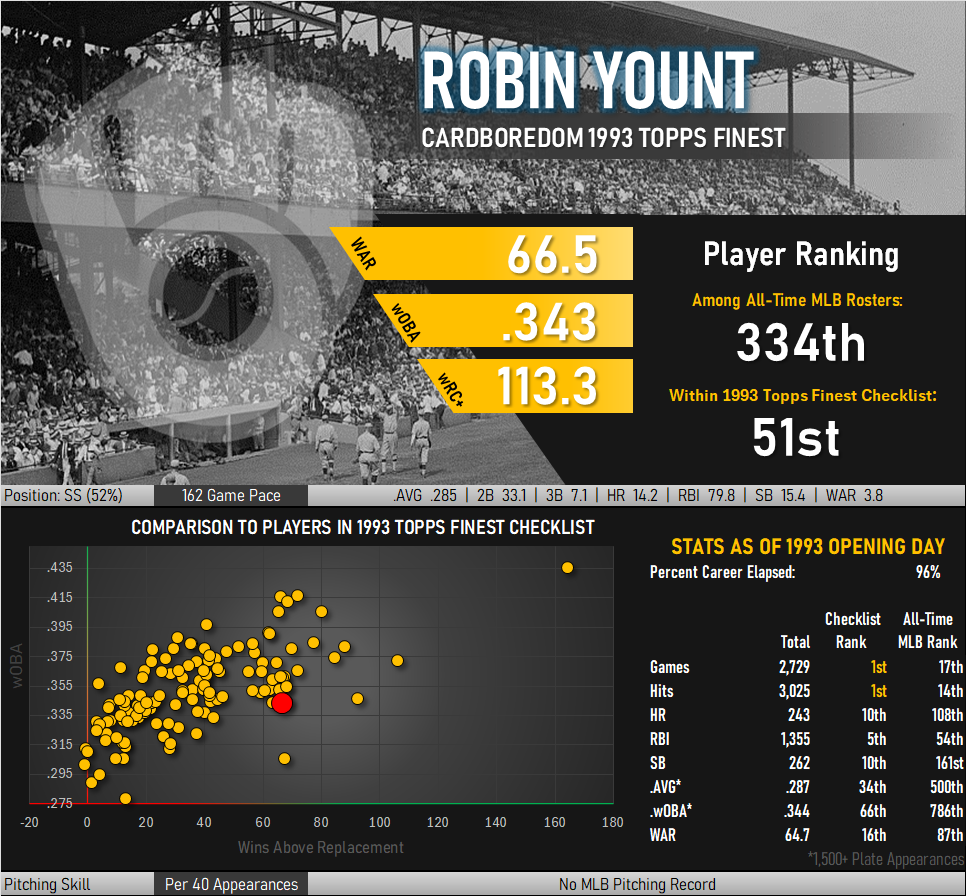
(Almost) Leaving Milwaukee
Yount is remembered as one of the few ball players of the free agency era who remained with one club for multiple decades. This wasn’t something he planned and he almost left the team on two separate occasions. The 1978 flirtation with the pro golf circuit almost saw him leave the game. Trade rumors were rampant during this time. A long-term contract was secured and Robin took home the MVP award in 1982.
His second MVP season came at the expiration of this contract in 1989. Yount was ready to move on to a more lucrative setting. Several teams expressed interest, including the California Angels. Yount eventually broke off negotiations and signed an extension with the Brewers after receiving bags of fan mail pleading with him to stay. The Angels went on to obtain Yount’s fellow 1973 draft-mate Dave Winfield for the 1990 season.
Random Fact:
Robin has the same number of career innings pitched as his older brother Larry, a pitcher for the Houston Astros. In his first appearance, Larry was called out of the bullpen to close out the 9th in a 1971 game. He injured his elbow while throwing warm up pitches and was subsequently pulled from the game. Because he was announced as the pitcher, he is credited with making an MLB pitching appearance. Because he never got anyone out (or even faced a batter), he did not have any innings credited to his stat line. Larry never threw again in a MLB game, giving him a career record of 0.0 innings pitched.
The Most Robin Yount Card of All Time
Pinnacle made its baseball card debut in 1992, releasing a set best known for condition sensitive black borders and excellent photography. A 14-card subset entitled “Sidelines” highlighted players’ off-the-field hobbies. Randy Johnson is shown with a camera. Nolan Ryan is herding cattle. Kenny Lofton is scoring points in the NCAA basketball tournament. Robin Yount (or at least a helmeted facimile) is airborne in a motocross race.

Yount loves anything with an engine and particularly enjoys motorcycles. He even took one for spin around the outfield of Milwaukee’s County Stadium in 1982. He tricked out a riding lawnmower (no word on if he tried to impress the Milwaukee grounds crew with it). In 2000 Yount even took part in a Toyota Celica racing celebrity circuit, finishing 6th ahead of other notables including John Elway (9th), Allyson Hannigan (14th), and George Lucas (16th).
1993 Finest Refractor
Yount was at the end of his career when he appeared in the ’93 Finest checklist. He would announce his retirement in February 1994, giving most card manufacturers no time to cut him from their 1994 offerings. The ’93 Finest card is a good sendoff with the career stat line on the back showing him with 3,025 hits. Ten other players in the set would eventually end up in the exclusive 3,000-hit club, but only Yount and George Brett had at least that many recorded on the back of their baseball cards when the set was released.
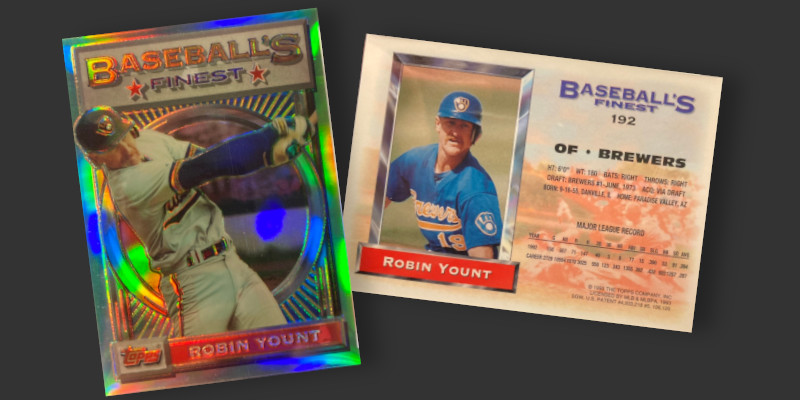
Yount’s cards generally aren’t the ones with the strongest following among Hall of Fame caliber players. The core group of collectors chasing his cards tend to either be local Milwaukee fans or people who came of age collecting in the late 1970s/very early 1980s. This is the same group that typically eschews inserts and shiny parallel cards. That is what makes this card so interesting: There is always strong demand for the card. Examples don’t stick around eBay too long. Bidding goes higher than it does for similar players. Even PSA reflects this in the relative weighting of the card in the set registry, assigning Yount a 3.5x that of a normal card and equating it in importance to Randy Johnson.
